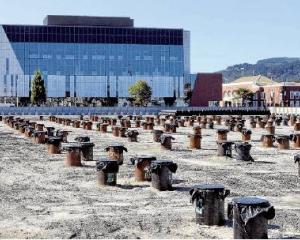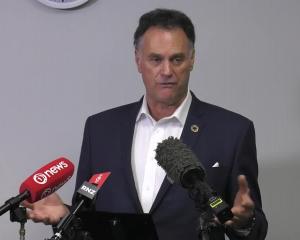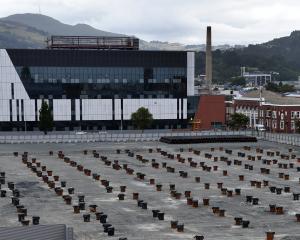
The officials are known to be asking tough questions about the risks of undertaking a refurbishment of the asbestos-riddled ward block rather than proceeding with the previously promised rebuild, which has been in the planning for years.

On September 26, Health Minister Shane Reti and Infrastructure Minister Chris Bishop announced they were considering two options - refurbishment and a smaller new build - due to a budget blowout they said "could approach $3 billion".
Although a final decision is still unknown, it is understood the tone now being taken by officials indicates a refurbishment is unlikely to be the front-runner recommendation to ministers.
The option was dismissed as impractical by engineers in 2017 and last month clinicians sent a letter to Prime Minister Christopher Luxon that warned of "extreme caution" regarding any attempt to revive the 50-year-old ward block. Previous modest refurbishments had led to a "cascade of knock-on adverse clinical ramifications".
Piles are already in the ground for the inpatient building on the old Cadbury factory site.
Later this month, it is understood the findings of the reconsideration of a refurbished ward block or a smaller inpatient rebuild will go to an external governance committee called the Project Steering Group. It is chaired by Rebecca Wark, previously a health infrastructure boss in New South Wales.
The findings, plus advice from the group, will then go back to HNZ’s Investment and Infrastructure Group before being put to ministers.
HNZ’s decision-making is monitored by the Ministry of Health. The Infrastructure Commission and the Treasury also provide oversight and advice.
A government announcement about the hospital’s future is expected early next month.
HNZ infrastructure delivery head Blake Lepper, the senior responsible officer for the hospital build, said HNZ "has been instructed by ministers to develop options that will deliver modern, fit-for-purpose health facilities to enhance clinical safety and enable new models of care, and that can be achieved within the budget outlined".
"We are working urgently to present initial options analysis and advice for ministers to consider as soon as possible."
The hospital’s current budget is $1.88 billion.
Pete Hodgson, the former chairman of a committee that helped to oversee the build under the Labour government, said the refurbishment option had "no future".
"It is a misuse of scarce resource to spend any more time on it. To secure any savings [on the promised new inpatient building] - if any savings exist - will need all hands to the pump and to be distracted by this ward block option is absurd and should stop.
"I don’t care whether the ward block option forms part of the officials’ paper for Cabinet or not, as long as the recommendation is the new building."
One source indicated any major changes to the inpatient building’s design - such as a proposal made last month to have more generators in the building - could change the building’s weight and require a full structural redesign.
The hospital had already been designed twice due to an effort to cut costs in 2022.
"It’s a very expensive design if you have to do it three times."
Mr Hodgson agreed.
"The cost of redesign is known to be substantial ... and would almost certainly lead one to the conclusion it is better to leave well alone."
A spokesperson for Dr Reti’s office said ministers expected to receive advice from HNZ as soon as possible.
The government had recently increased the budget for the new Dunedin hospital and there were other important builds across the hospital system that needed funding as well.
Public concern was recognised and "clinical input has been and will continue to be very important as and when any decisions are made".











